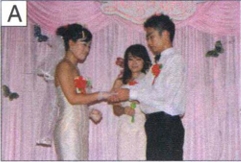 B
B C
C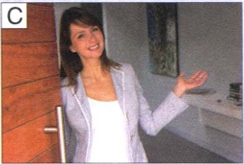 D
D E
E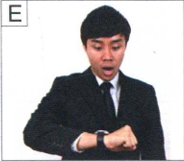 F
F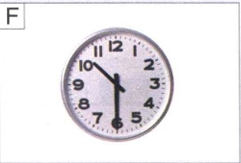
- shí diǎn bàn 十点半 ____
- chí dào 迟到 ____
- huān yíng 欢迎 ____
- jié hūn 结婚 ____
- yín háng 银行 ____
- tóng shì 同事 ____
| 做什么 | 几点到几点 | 多长时间 |
|---|---|---|
| 做作业 zuò zuò yè | 9点到11点 | 两个小时 |
| 锻炼 duàn liàn | ||
| 吃晚饭 chī wǎn fàn | ||
| 看电视 kàn diàn shì | ||
| 上网 shàng wǎng | ||
| 睡觉 shuì jiào |
课文 Texts1 在办公室 In the office
同事:那个漂亮的新同事是谁?
小刚:那是小丽。
同事:她刚来北京吗?
小刚:不,她在北京工作三年了。
同事:以前她在哪儿工作?
小刚:她在银行工作了两年以后来的我们公司。
生词 New Words
- 1. 同事tóngshì n. colleague
- 2. 以前yǐqián n. before, ago
- 3. 银行yínháng n. bank
2 在休息室 In the lounge
同事:周末你跟小丽去哪儿玩儿了?
小刚:我们去唱歌了。
同事:你们唱了多久?
小刚:我们唱了两个小时歌,晚上还去听音乐会了。
同事:你们都对音乐感兴趣吗?
小刚:她对音乐感兴趣,我对她更感兴趣。
生词 New Words
- 4. 久jiǔ adj. for a long time, long
- 5. 感兴趣gǎn xìngqù to be interested in
3 在休息室 In the lounge
小刚:我跟小丽下个月结婚,到时候欢迎你来。
同事:什么?结婚?
小刚:对啊,突然吗?
同事:你们不是刚认识吗?
小刚:我跟她都认识五年了。
同事:你跟她结婚,那我怎么办啊?
生词 New Words
- 6. 结婚jié hūn v. to marry, to get married
- 7. 欢迎huānyíng v. to welcome
小丽:你看看手表,怎么迟到了?
小刚:没迟到啊。
小丽:你不是说七点半来接我吗?你迟到了一刻钟。
小刚:现在不是七点半吗?
小丽:已经差一刻八点了!我都在这儿坐了半个小时了。
小刚:不是我迟到了,是你的表快了一刻钟。
生词 New Words
8. 迟到 chídào v. to be late
9. 半 bàn num. half
10. 接 jiē v. to meet (sb.), to pick up (sb.)
11. 刻 kè m. quarter
12. 差 chà v. to fall short of
拼音课文 Texts in Pinyin
1、Zài bàngōngshì
tóngshì: Nàge piàoliang de xīn tóngshì shì shéi?
Xiǎogāng: Nà shì Xiǎolì.
tóngshì: Tā gāng lái Běijīng ma?
Xiǎogāng: Bù, tā zài Běijīng gōngzuò sān nián le.
tóngshì: Yǐqián tā nǎr gōngzuò?
Xiǎogāng: Tā zài yínháng gōngzuòle liǎng nián yǐhòu lái de wǒmen gōngsī.
2、Zài xiūxishi
tóngshì: Zhōumò nǐ gēn Xiǎolì qù nǎr wánr le?
Xiǎogāng: Wǒmen qù chàng gē le.
tóngshì: Nǐmen chàngle duō jiǔ?
Xiǎogāng: Wǒmen chàngle liǎng ge xiǎoshí gē, wǎnshang hái qù tīng yīnyuèhuì le.
tóngshì: Nǐmen dōu duì yīnyuè gǎn xìngqù ma?
Xiǎogāng: Tā duì yīnyuè gǎn xìngqù, wǒ bǐ tā gèng gǎn xìngqù.
3、Zài xiūxishi
Xiǎogāng: Wǒ gēn Xiǎolì xià ge yuè jié hūn, dào shíhou huānyíng nǐ lái.
tóngshì: Shénme? Jié hūn?
Xiǎogāng: Duì a, tūrán ma?
tóngshì: Nǐmen bú shì gāng rènshi ma?
Xiǎogāng: Wǒ gēn tā dōu rènshi wǔ nián le.
tóngshì: Nǐ gēn tā jié hūn, nà wǒ zěnme bàn a?
4、Zài gōngsī ménkǒu
Xiǎolì: Nǐ kànkan shǒubiǎo, zěnme chídào le?
Xiǎogāng: Méi chídào a.
Xiǎolì: Nǐ bú shì shuō qī diǎn bàn lái jiē wǒ ma? Nǐ chídàole yí kè zhōng.
Xiǎogāng: Xiànzài bú shì qī diǎn bàn ma?
Xiǎolì: Yǐjīng chà yí kè bā diǎn le! Wǒ dōu zài zhèr zuòle bàn ge xiǎoshí le.
Xiǎogāng: Bú shì wǒ chídào le, shì nǐ de biǎo kuàile yí kè zhōng.
注释 Notes
1 时段的表达 To Express a Period of Time
时段是指动作或状态持续的时间,一般由时量补语充当,如 “一刻钟、半个小时、两天、三个月等” 。
A period of time refers to the length of time that an action or a state lasts, usually indicated by a complement of duration, such as “一刻钟”(a quarter), “半个小时”(half an hour), “两天”(two days), or “三个月”(three months) etc.
“S + V + 了 + Duration + O” 表示动作持续的时间。例如:
“S + V + 了 + Duration + O” indicates the duration of an action. For example:
- 她工作了三年。
- 我们坐了一个小时公共汽车。
- 你怎么晚到了一刻钟?
- 我们唱了两个小时歌。
“S + V + 了 + Duration + O + 了” 表示仍在进行的动作所持续的时间。比如 “看了一个小时书了” ,表示看书的时间是一个小时,并且现在还在看书。例如:
“S + V + 了 + Duration + O + 了” indicates the duration of an action which is still going on. For example, “看了一个小时书了” means one has already read for an hour and is still reading. For example:
- 我学习了一年汉语了。
- 她看了半个小时电视了。
- 他们游了二十分钟泳了。
- 我都在这儿坐了半个小时了。
练一练 Practise
完成对话 Complete the dialogues.
-
A:你学了多长时间汉语了?
B:____________________。
-
A:____________________。
B:我在这个地方住了十年了。
-
A:小王还没来,你等了他多长时间?
B:____________________。
2 表达兴趣 To Express an Interest
汉语表达兴趣常常用 “对……感兴趣” 和 “对……有兴趣” ,它们的否定式是 “对……不感兴趣” 和 “对……没(有)兴趣” 。程度副词要放在 “感兴趣” 和 “有兴趣” 的前边,如 “很感兴趣”“非常有兴趣” 。例如:
In Chinese, one can use “对……感兴趣”or “对……有兴趣”to express an interest in something. The negative form is “对……不感兴趣”or “对……没(有)兴趣”. The adverb of degree should be put before “感兴趣”or “有兴趣”if there is any, such as “很感兴趣” and “非常有兴趣”. For example:
(1)他们对电影感兴趣。
(2)我儿子对打篮球不感兴趣。
(3)同学们对汉语有兴趣。你们都对音乐感兴趣吗?
(4)我对她更感兴趣。
练一练 Practise
完成对话 Complete the dialogues.
(1)A:你对什么运动感兴趣?
B:________。
(2)A:你喜欢汉语吗?
B:________。
(3)A:________。
B:我不喜欢听音乐。
3 用“半”“刻”“差”表示时间 To Indicate Time Using “半”“刻”or “差”
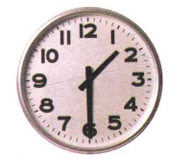
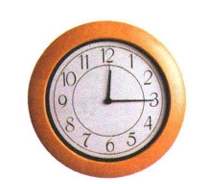
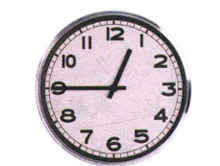
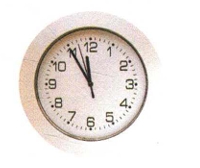
一点半
十二点一刻
十二点三刻/差一刻一点
差五分十二点
注意:“一刻钟”是时段的表达,表示十五分钟。比如“我等了你一刻钟”的意思是“我”等了你十五分钟。
Note: “一刻钟”is a period of time, meaning a quarter, i.e. 15 minutes. For example, “我等了你一刻钟”means “I’ve waited for you for 15 minutes”.
练一练 Practise
用“半、刻、差”说出下列时间 Say the following time using “半”,“刻”or “差”.
(1)10:30
(2)12:45
(3)11:59

Comments